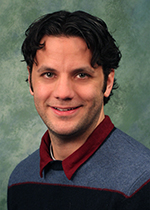QDRL Works with Federal Agencies to Evaluate Blood Donation Procedures
Posted on byAn integral element of the Office of Research and Methodology’s (ORM) mission is to work with other federal statistical agencies to develop and test survey instruments. To that end, in 1985, the National Center for Health Statistics (NCHS) created the Questionnaire Design Research Laboratory (QDRL). Recent projects include examining alternatives to sexual identification questions used in NCHS’s National Health Interview Survey as well as other international surveys. QDRL developed relevant goals and design principles for a new question, which was tested through interviews in both English and Spanish. The Department of Health and Human Services (HHS) is scheduled to adopt the new question this year.
In 2012, QDRL joined with the Food and Drug Administration (FDA), the Office of the Assistant Secretary for Health, the Centers for Disease Control and Prevention’s Office of Blood, Organ, and Other Tissue Safety, and other interested partners to evaluate the FDA’s current blood donation policy regarding men who have sex with other men (MSM). Under existing guidelines, FDA bans any male who has had sexual contact at least one time with another male since 1977 from donating blood during his lifetime. The American Association of Blood Banks (AABB), American Red Cross, America’s Blood Centers, and several major U.S. cities have called for changes to the lifetime ban. HHS is currently revisiting the policy.
QDRL is evaluating the long form of the Blood Donor History Questionnaire (BDHQ), endorsed by AABB and used by the American Red Cross and many blood donation centers to help defer high-risk donors and help ensure the continued safety of the country’s blood supply. To ensure that all blood received for donation is safe for transfusion purposes, blood services screen potential donors for high-risk behaviors through questionnaires and interviews before blood is taken. (They also conduct subsequent laboratory testing on donated blood.) BDHQ represents the first level of screening. It comprises 48 questions about general health, travel, and sexual history.

To evaluate the BDHQ questions, QDRL scientists employ a methodology known as cognitive interviewing. According to Dr. J. Michael Ryan, Project Lead, cognitive interviewing is “a bridge between survey writers and respondents. Through in-depth questioning, we determine what respondents think they’re answering, and compare it to what survey writers think they’re asking.”
This methodology provides insights into the ways a question operates by determining patterns of interpretation among respondents in how they come to comprehend and answer questions. Dr. Ryan’s team runs through each question and each answer with respondents, then digs into the answers—what did the respondent think the question meant? Analysis of cognitive interviews can lead to suggestions for improving question validity, as well as assisting in post-collection data interpretation.
For the BDHQ project, QDRL focused questionnaire research on five U.S. regions: Washington, D.C.; Los Angeles, Calif.; Austin, Texas; Salt Lake City, Utah; and the Mobile, Ala./Biloxi, Miss., region of the Gulf Coast. The regions were selected to try to capture potential regional diversity in patterns of interpretation. For example, do Washington respondents interpret questions differently from Austin respondents? Are Los Angeles respondents more likely to respond incorrectly to a question about international travel because they do not consider day trips to Mexico as international trips?
QDRL staff members have conducted cognitive interviews of 166 diverse respondents across the country. Special efforts were made to include respondents who are MSM, including MSM who do not identify themselves as gay. Analysis of these data could potentially reveal critical information about whether the MSM population interprets certain questions, such as those related to sexual activity, differently from the non-MSM population.
With cognitive interviewing completed, Dr. Ryan’s team is focusing on a full analysis of the questionnaire. The analysis not only looks at answers to individual questions, but at all answers in relation to all questions and all other answers. It is thorough, painstakingly detailed work, but necessary for project participants to have the quality of data necessary to move forward with their evaluation.
Dr. Ryan and his team next turn their attention to western Kenya, and an international project with significant, global public health ramifications. QDRL will work with the World Health Organization and NCHS’s International Statistics Program to develop a new verbal autopsy questionnaire. The verbal autopsy is a structured interview with decedents’ next of kin, to help determine cause of death in developing regions without physicians.
Posted on by

